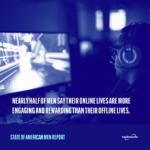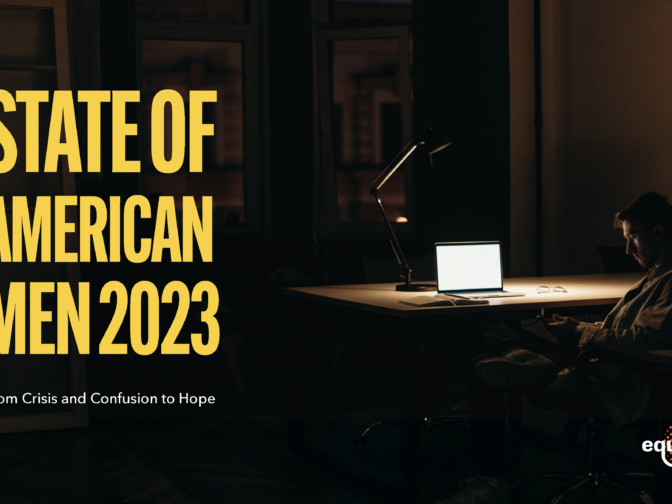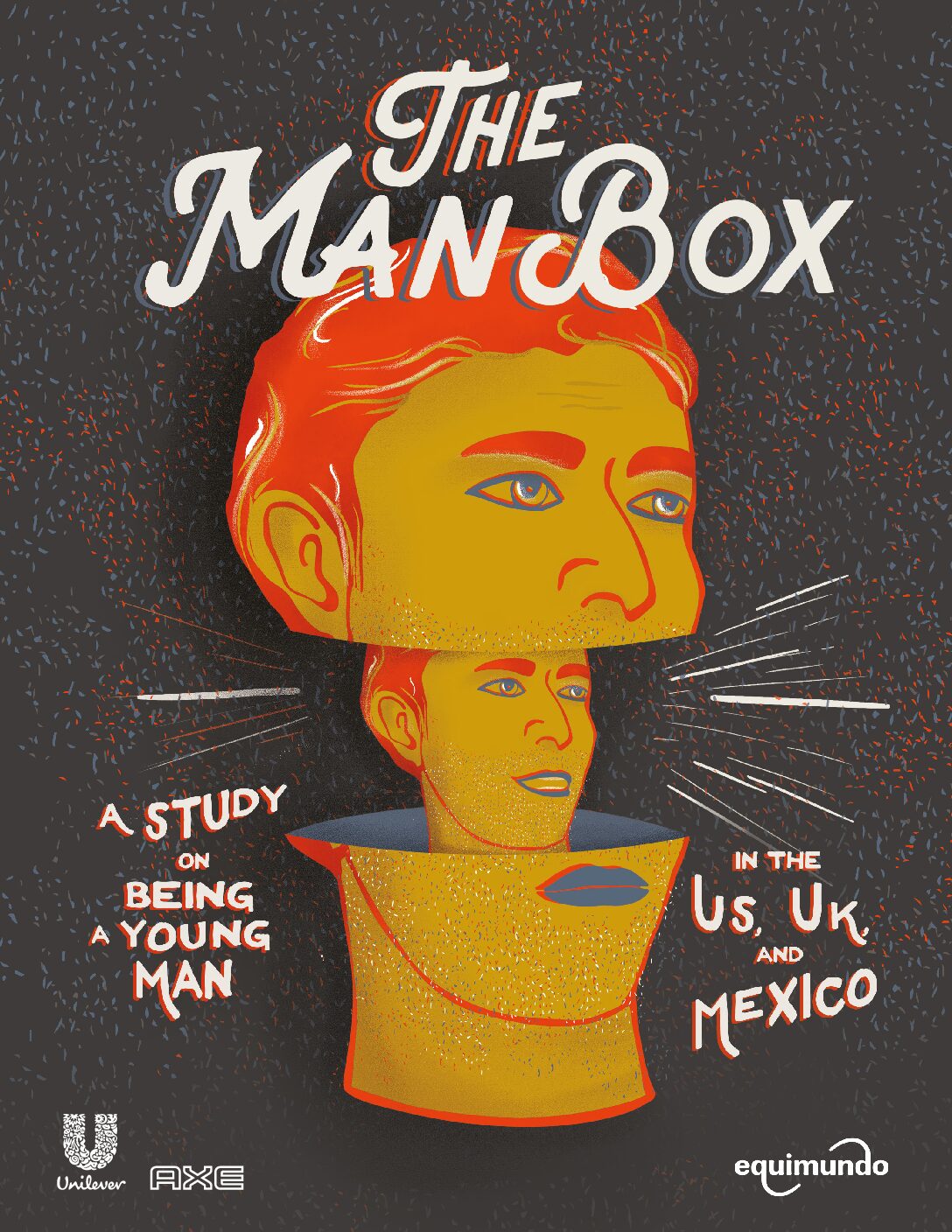Men in the US are in trouble – and that trouble affects us all. Many feel their lives are precarious, their futures uncertain, and their identities threatened. But while the situation is especially acute now, precarity has always been built into boyhood and manhood. No man can live up to the idealized views of manhood we too often raise boys with.

In response to masculine norms that govern every aspect of men’s and boys’ lives – and are woven into family life, schools, sports, and other community spaces – many young men are only tenuously connected in caring relationships and caring notions of manhood. Many more feel totally disconnected and have retreated into private lives of underemployment, online addiction, and the pretense that they can go it alone. Many of those also find solace in misogyny and white supremacy. The Man Box is never a healthy or happy place for boys or men.
But there are real signs of hope as well. Large numbers of men are on board with gender equality and healthy ideas of manhood. Perhaps more importantly, there is a large group of “men in the middle” who are skeptical generally, perhaps to a fault, and yet manage to resist the appeals of the manosphere.

So what would it take for men and boys to become the nurturing, caring, connected, and nonviolent people we know they can be – to truly live the values of healthy masculinities?
We need a massive narrative shift and a major marketing push on the many obvious benefits of allyship for gender equality and racial justice and of healthy, connected versions of manhood. In sum, we need an alternative to the manosphere, a space that guides young men toward positive ideas of manhood while providing connection and a sense of purpose.
More specifically, we need to:
- Build a bigger tent for engaging men and boys. More needs to be done to understand, motivate, and engage young men in open dialogue on how and where they can be allies, listening to and incorporating their needs as well.
- Start early by guiding parents in supporting boys to be connected, caring, and equitable. Equimundo’s Global Boyhood Initiative provides ideas on how parents can have meaningful conversations with their young sons, particularly on the harm their sons may be streaming online.
- Establish relational teaching as a cornerstone of education. Teachers’ roles in relational teaching models, in which their connection with their students mediates these students’ ability to meaningfully participate in learning, must be taken to heart and scaled up. Evidence tells us that teacher-led discussions about healthy relationships and healthy manhood, particularly discussions with boys and girls together, show a positive impact.
- Expand models and platforms that include health services and health professionals to support and invite men in and accept their vulnerabilities. From the increased social acceptability of men in acknowledging mental health needs to the power of voices like Movember in calling attention to men’s health, we have templates and approaches for making health services more inviting and better attuned to men’s diverse and intersectional health needs.
- Encourage brands to use their voice to promote healthy, aspirational views of manhood. Some brands are also doing this; some have backed away because of real, justified fears of backlash. We need brave brands willing to use their reach to build social purpose into their advertising in order to model and turn up the volume on why and how healthy, connected manhood matters. Several brands have seen a positive response when they do so.
- Engage workplace and corporate leadership in true male allyship in their diversity, equity, and inclusion programs. Such programs for engaging men show promise when they’re long enough, structural enough, and provide clear guides and expectations on how men can be allies for gender equality and healthy masculinities.
- Expand efforts to involve sports coaches and other voices who influence boys. Futures Without Violence and other organizations, including InSideOut and Mentors in Violence Prevention, have long engaged coaches and sports as a space to engage boys and men. The multiple positive results from such work merit large scale-up.
- Review and implement employment policies that acknowledge the needs of socially disconnected young men, complemented by an expansion of basic labor rights and worker welfare, from higher minimum wages to guaranteed parental leave to guaranteed health insurance and job training, and psychosocial support. The MenCare campaign and scholar Richard Reeves have called for policies that also call men into care professions, a growing area of economies around the world.

- Engage the media, including the online gaming space and the internet in general, as allies for healthy masculinity. Online services and the video game industry must be held accountable for their role in fostering or allowing harmful voices to proliferate. They also must be allies in creating solutions, presenting stories and spaces for healthy manhood to counter the steady stream of violent manhood that too often prevails.
- Provide guidance for discussions about porn for parents, youth, educators, and the porn industry itself. Parents should work to build trust with their children about porn and sexuality by keeping conversations two-sided, rather than starting from a place of judging natural curiosity. Equipping young people with the skills to critically examine online content has far-reaching benefits – but first takes adults in the room to open up space for these conversations to occur without shame or retribution.
With all these approaches, we must focus on the most vulnerable people and the multiple disadvantages they face. It is essential to care about the needs of those left most behind by educational, vocational, and social changes and affected by incarceration. Racial equity and economic justice must be part of the conversation on healthy masculinity. Finally, we must trust and empower young men to find and define pathways to healthy manhood, in dialogue with young women. The boys are not all right, and it is up to all of us to support them to create the conditions possible for achieving male allyship and the full promise of healthy, connected, empathic manhood.
Read the full State of American Men report here.




